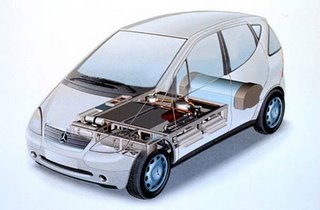I May, I Must, I Want
Ideas that have been proposed to decrease demand include:

Subsidizing and supporting research in improved fuel efficiency.

Compulsory increases in fuel efficiency standards for cars and light trucks.
The problem with these solutions is they don’t decrease demand.
Demand is, “I want.”
In the first case creating vehicles that have improved fuel efficiency gives people the means but it doesn’t necessarily make them want to use such vehicles. If they are unfamiliar, less safe, less reliable, harder to find fuel for, or the price of fuel falls then people may not be inclined to buy them. Improved fuel efficiency means, “I can.” not “I want.”
Compulsory fuel standards are just that, compulsory. If people aren’t inclined to cram themselves into fuel efficient cars then they won’t. After 9/11 when energy policy was being debated, environmentalists were promoting increased standards. The auto industry pointed out that 15 % of the cars they made would meet the higher standards that had been proposed but those car represented only 4% of their sales. Compulsory standards means, “I must.” not “I want.”
In order to decrease demand we want people to want to save energy.

1 Comments:
But when California passed the zero emmissions law requiring a certain percentage of automakers' cars to be zero-emmission, Automakers built cars that both met the standards and that people did want. The automakers fought the law in court, won, ceased to make the vehicles, repossessed leased ones and destroyed them. Why? Because if everyone knew they could make zero-emission vehicles now, they'd require them to everywhere; they'd have to alter all their plants and they are lethargic. Maybe their oil buddies also had something to say about it.
Post a Comment
<< Home